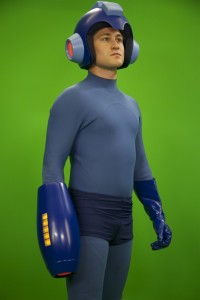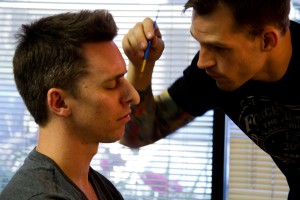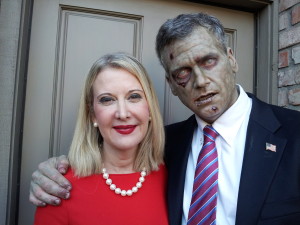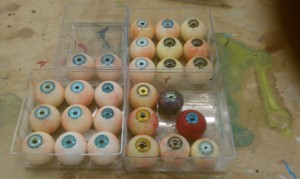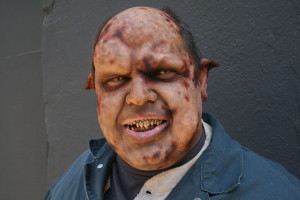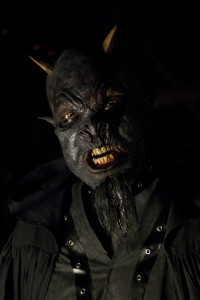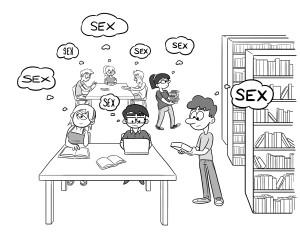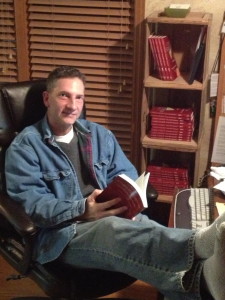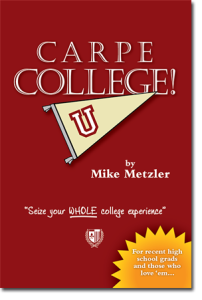Welcome to the first in a series of weekly blog posts featuring my former students and where their lives have taken them so far. My hope is that each individual feature, and the collection as a whole, will interest and inspire young people, giving them a sense of the unique experiences and the wide array of possibilities that await them in the world. Lots of paths for lots of journeys, in other words.
This first post may seem a bit obtuse for a couple of reasons. First, because it didn’t get posted on Friday the way I’d planned. Second, because our featured student chose not to attend college, which might be a little peculiar coming from a blog that’s a companion to a book about seizing one’s entire college experience.
One of the most important lessons of the book, however, is to be open-minded to all the wonderful experiences the world might throw at you and to follow our mantra: Know Thyself, Have a Plan, and Assume No One Else Cares.
When you meet Dan in what follows, you’ll see that he’s surely done that.
(NOTE: Pictures of some of Dan’s work will be peppered throughout; however, most of what he creates is owned by the movie studios, so visit IMDB to get a sense of the breadth of his work HERE.
Dan Crawley
I’m not really sure how to write advice for young people who are on the cusp of entering or are already in college. I’m actually not really sure how to write in general. I was a good student through all of my school years, but those years ended with graduating high school. My story actually diverges from the norm before I received my diploma which came by way of mail, and not via walking down the aisle in cap and gown.
I have a tendency to get long winded, so I’ll try to hit the play by play and get to the point. I don’t believe my years in middle school and high school were too terribly different than most youngsters and I’m sure I faced many of the same adversities and challenges that anyone faces. I wasn’t popular and I wouldn’t even say I was generally very well liked. I was a kid from a small, lower middle class town that attended a school comprised predominantly of kids of wealthy and conservative families. My reaction was obviously to draw attention to myself via imagery and appearance contrary to that world. This made high school an experience I wanted to end sooner rather than later and so with all my credits completed by the middle of my senior year, I graduated early at barely 17 years old.
Art had always been a focus for me since a very young age, and I was drawing pretty much non-stop since as early as 5 years old. It was something that I had a natural ability at and that I was happy to practice to sharpen those skills further. Somewhere around the age of 9 or 10 I saw a behind the scenes special involving special make-up effects used for movies. I was fascinated by the imagery I think more than the actual process since I hadn’t been exposed to a lot of the types of movies that are heavy in that realm. Animatronics in particular grabbed my attention since my interest in all things mechanical or electronic was second only to my insatiable need to produce art.
By the time that early graduation from high school came along, I had convinced my parents to let me attend a specialty trade school for special effects make-up and animatronics in Orlando. This was a long way from where I grew up in the suburbs of Chicago, I was only 17, and my parents were pretty adamant that I go to college first. They argued that I should get a college education first, and then I could attend the trade school if I still wanted to. They thought it would be important to have something ‘to fall back on’. I even humored them by visiting a school in Pittsburgh that had what they called an Industrial Design Technology program, which was a fancy way of conveying that they taught a watered down version of special effects. It was a 2 year program, and the trade school was only just over 4 months. I knew what I wanted to do and thought that the quicker I could get into the business and just start working, the better.
I won the battle and moved to Orlando at 17 years old and attended that trade school. I was all alone, and my parents actually had to lie on the application for me to have an apartment and say that my older brother was living with me because they wouldn’t allow a minor to live there alone. I was already a few weeks into school when the rest of my high school class walked the aisle. My diploma was mailed to my parent’s house.
I finished the program and moved back home by the fall to save money and decide on my next move. My parents took on a great financial burden to send me to that trade school both in tuition and in housing me while I was there. I held odd jobs at nights and weekends while I was there to pay for what I could, but I actually owed money to the bank by the time I left Florida. This intensified my desire for success with the obligation to fulfill their investment. I knew that all of the work was in Los Angeles, so that was where I needed to go. I had a friend whose mom lived out there and he was also eager to move to Los Angeles, so we decided after the first of the year we would move out there together. Two weeks before our intended move, however, my friend bailed on me, and with that went any kind of connection or housing in a city an entire country away.
This was another time I made a decision to take an unorthodox approach. I moved to Los Angeles anyway, without my friends or family, barely 18 years old, and only about $2000 to my name that I had saved from working since returning from Orlando. I drove across country without the internet, a cell phone, or a place to live. I can honestly say that it didn’t seem as crazy as it sounds now, and I’ve never been so excited in my life. I was incredibly fortunate to have parents that supported me even if they didn’t understand me. I was naïve enough to think that there was no other option but to be successful.
The first 6 months were very hard, but I did it on my own and never had to borrow any money. I worked a grocery store nights and weekends to support myself very modestly. During the day I worked at a special effects shop for free doing all of the odd jobs nobody wanted to do, but I watched and listened and learned. I put in as many hours as I could and jumped at any opportunity I got to learn or be involved. I quickly realized that my trade school education was outdated and nearly worthless. It was actually a scarlet letter to the people in the business, and so it became my secret pretty quickly. After about 8 months I was finally being paid and was able the leave the grocery store and make make-up and special effects my only job. It was a very proud moment, but I still had a long way to go.
I started bouncing around to different effects houses in the area, building upon my skills and luckily my wages too. By a year and a half in, I got a job at the top special effects house in the entire business. It was owned by the man who was the subject of that behind the scenes special that had ignited my passion all those years ago as a child. It was a place where the top artists in the field worked on the highest profile movies and projects in the business. I was only 19 years old when I got the job, and although I was at the very bottom, I was still in. It seemed as though all of my hard work, sacrifice, and probably a little luck had all converged to give me what I had dreamed of.
It was short lived.
A series of concussive blows to my newfound success came within less than a month. My roommate told me he was moving, which left me with no place to live. My car broke down and I didn’t have enough money to fix it or get a new one. I was able to borrow a bicycle from a friend and ride it 7 miles each way to work at my dream job, but was hit by a car on two separate occasions in one week. Then I got laid off from that dream job since the movie we were working on came to an end and I was the low man on the totem pole. Finally, September 11 happened and pulled the rug out from an entertainment industry already debilitated by a writer’s strike from the previous summer. By the end of November I was out of money, there were no prospects for work, and I had to move out of my apartment. After nearly two years in the industry that I fought desperately to be a part of, I put what little I owned in storage and headed back to my parents’ house in Illinois literally penniless.
Discouraged but not defeated, I took the month of December to spend time with my family and devise a path back to Los Angeles. Here came some hard choices and my naively ambitious answers again. By mid-January I was on a plane back to California where I would live out of a single duffle bag on my friend’s couch. I found a few days’ work where I could and rode that borrowed bicycle in the bitter cold early morning hours to get there on time. By the end of February I had found a room to rent, and by mid-April I was able to buy a car. In less than a year I went from the height of my career, to a worse situation that when I began it, and finally back to enough of a baseline to survive and look for further opportunity.
The story wraps up pretty quickly from that point. Within less than a year from moving back I had worked my way to supervising small crews and working most of the months of the year. I think it was somewhere in my fourth year that my parents finally decided that what I was doing was an actual career. From about that point on I’ve worked steady ever since and had some amazing opportunities and experiences along the way. 14 years later I still love what I do, and that’s not to say it can’t get monotonous and boring, but I’m truly lucky to earn a living at something I’d be doing anyway.
I think that almost all of my successes came from a combination of saying yes to every opportunity and then working hard to make those opportunities a success. There were many times when I was asked if I knew how to do something and the answer was always ‘yes’ whether I knew how or not. I have truly lived a trial by fire. I’ve always believed that by throwing myself into an unfamiliar or challenging situation I will rise to it and thus become stronger for it. This can be a dangerous game to play, but it is one that I believe plays a large part in my education via experience.
Most of the skills I use on a daily basis can’t be taught in a school. I would say the number one most important tool to success in my field is problem solving ability. Everything we do is custom and never has been done before, so while your experiences from previous projects can be applied, every job presents a new set of unique challenges. I don’t know if you can effectively teach instinct in a classroom. My kind of problem solving is a step by step way of thinking that requires a cool head and a logical approach, but also a little luck and magic.
I don’t think I could ever really say if I’m left or right brained since everything I create and every choice I make are the result of perhaps just being advantageously scatter brained. I also don’t know that I’m qualified to give advice as to what path young people today should take since the world has changed so much since I was that age. But passion and perseverance seem to be an integral part of it. All I can do is share with you what got me to where I am today in my career and say that it won’t be the same for anyone else. Every journey can take many different paths to arrive at the same destination. Are any of them the right one if they all lead to the same place? Some are certainly easier or more direct, but perhaps won’t build the character necessary to be the most successful or effective once you arrive.
Thank you.







